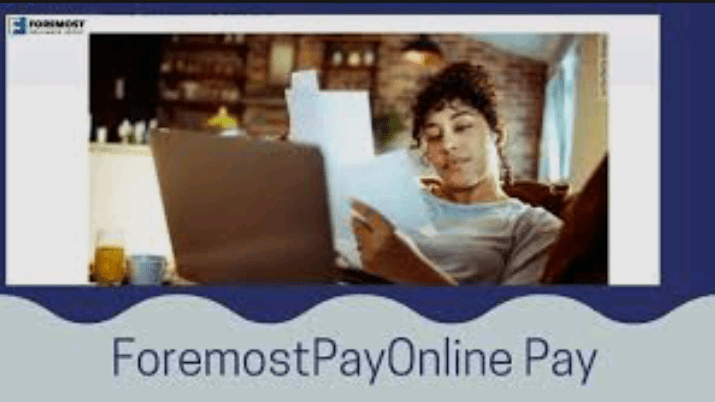Exploring ForemostPayOnline User-Friendly Payment Platform
ForemostPayOnline is a leading online payment platform that allows users to make payments for a variety of products and services from their homes or offices. The platform has gained immense popularity among consumers and businesses alike due to its ease of use, security, and convenience.
One of the standout features of ForemostPayOnline is its user-friendly interface, which makes it easy for even the most technologically challenged individuals to make payments online. The platform is designed to be intuitive and user-friendly, with clear instructions and prompts guiding users through each step of the payment process.
Another key feature of ForemostPayOnline is its commitment to security. The platform uses the latest encryption technology to protect users’ sensitive financial information, ensuring that all transactions are safe and secure. Additionally, the platform is PCI-compliant, meaning that it adheres to the highest standards of data security set by the Payment Card Industry.
ForemostPayOnline also offers a wide range of payment options to cater to the needs of different users. Customers can make payments using their credit or debit cards, or through bank transfers. The platform also supports e-wallet payments, which allow users to store their payment information securely and make payments with a single click.
For businesses, ForemostPayOnline offers a range of advanced features designed to streamline the payment process and improve operational efficiency.
These include features such as recurring billing, which allows businesses to automatically bill their customers on a regular basis, and invoicing, which enables businesses to create and send invoices directly from the platform.
Overall, ForemostPayOnline is a reliable and convenient payment platform that has revolutionized the way people make payments online.
Its user-friendly interface, robust security features, and wide range of payment options make it an ideal choice for both consumers and businesses looking to streamline their payment processes and improve their overall financial management.
Read Also: Navigating Washington Apple Health: Tips and Tricks
Online Payment Systems

Online payment systems have revolutionized the way we conduct transactions and handle finances. With the increasing popularity of online shopping, it has become essential for businesses to provide a secure and reliable method of payment to their customers. Online payment systems offer convenience, speed, and security to both businesses and customers.
What are Online Payment Systems?
Online payment systems are a way to transfer money from one party to another over the internet. They are a digital alternative to traditional payment methods such as cash, checks, and credit cards.
Online payment systems allow users to pay for goods and services, transfer money between bank accounts, and make donations to charities.
Types of Online Payment Systems
There are various types of online payment systems, each with its own features and benefits. Some of the most popular online payment systems include:
Credit and Debit Cards: Credit and debit cards are the most common type of online payment method. They allow users to make purchases online by entering their card information, such as the card number, expiration date, and security code.
Digital Wallets: Digital wallets are a type of online payment system that allows users to store their credit card and bank account information in a secure digital wallet. This enables users to make payments quickly and easily without having to enter their payment information every time they make a purchase.
Bank Transfers: Bank transfers are a type of online payment system that allows users to transfer money directly from their bank account to another bank account. This method is often used for large transactions, such as paying for a car or a house.
Cryptocurrencies: Cryptocurrencies are a type of online payment system that uses digital currencies, such as Bitcoin, to make transactions. They are decentralized and offer a high level of security and anonymity.
Benefits of Online Payment Systems
Online payment systems offer a range of benefits to both businesses and customers, including:
Convenience: Online payment systems allow users to make payments from anywhere at any time, without the need to visit a physical location or use cash.
Speed: Online payments are processed instantly, allowing businesses to receive payments quickly and customers to receive goods and services faster.
Security: Online payment systems use encryption and other security measures to protect users’ financial information and prevent fraud.
Lower Costs: Online payment systems are often less expensive than traditional payment methods, such as checks and money orders.
Challenges of Online Payment Systems
While online payment systems offer many benefits, they also present some challenges, including:
Security Risks: Online payment systems are vulnerable to hacking and other security risks, which can result in the loss of financial information and funds.
Technical Issues: Online payment systems rely on complex technology, which can sometimes fail or experience technical issues that can disrupt transactions.
Limited Acceptance: Not all businesses accept online payment systems, which can limit the options available to users.
Online payment systems have transformed the way we conduct transactions and handle finances. They offer convenience, speed, and security to both businesses and customers.
While there are some challenges to using online payment systems, the benefits far outweigh the risks. As technology continues to advance, we can expect to see even more innovative and secure online payment systems in the future.
Payment Gateway
In the digital age, payment gateways have become an essential part of online transactions. Payment gateways are the technology that enables electronic payment processing and facilitates secure transactions between merchants and customers.
A payment gateway acts as an intermediary between a merchant and a customer, facilitating the exchange of payment information between the two parties. The payment gateway ensures that the payment information is securely transmitted, encrypted, and stored.
Payment gateways work by authorizing the transaction, verifying the customer’s identity and payment method, and transferring the funds from the customer’s account to the merchant’s account. Payment gateways provide several benefits to both merchants and customers, including convenience, security, and reliability.
One of the key benefits of payment gateways is that they provide customers with a secure and convenient way to pay for goods and services online. Payment gateways use advanced encryption and fraud detection technologies to protect sensitive customer data and prevent fraudulent transactions.
Payment gateways also offer merchants a range of benefits, including the ability to process payments quickly and efficiently, reduce the risk of fraud and chargebacks, and improve cash flow by receiving payments faster.
In addition to traditional payment methods such as credit cards and debit cards, payment gateways also support newer payment methods such as digital wallets and mobile payments. This allows customers to make payments using their preferred method and provides merchants with greater flexibility in accepting payments.
Payment gateways are also easy to integrate into e-commerce platforms and other online systems, making it simple for merchants to set up and manage online payments.
Many payment gateways also offer additional features and services, such as recurring billing, subscription management, and analytics, that can help merchants streamline their operations and improve their business processes.
Despite the many benefits of payment gateways, there are also some risks and challenges associated with using these systems. One of the biggest challenges is ensuring that the payment gateway is compliant with all relevant regulations and standards, such as the Payment Card Industry Data Security Standard (PCI DSS).
Merchants also need to be aware of the fees and costs associated with using payment gateways, such as transaction fees, setup fees, and monthly fees. It’s important for merchants to choose a payment gateway that offers transparent pricing and doesn’t impose excessive fees or hidden charges.
Payment gateways play a critical role in the world of e-commerce and online transactions. They provide a secure, reliable, and convenient way for customers to pay for goods and services online, while also offering merchants a range of benefits and features that can help them streamline their operations and improve their business processes.
Despite the challenges associated with using payment gateways, they remain an essential tool for anyone looking to sell goods or services online.
Read Also: All What You Need To Know on Business Health Insurance
Secure Online Payment
As the world becomes more connected, the use of online payment methods has increased drastically. With the convenience of being able to purchase goods and services from the comfort of your own home, comes the risk of online fraud and cyber attacks. However, there are steps that can be taken to ensure that your online transactions are safe and secure.
Firstly, it is important to use a reputable and trusted payment service. Popular payment services such as PayPal, Stripe, and Amazon Pay have a proven track record of providing secure transactions.
These companies invest heavily in security measures such as encryption, fraud detection, and protection against identity theft. Using a trusted payment service ensures that your personal information, such as your credit card details, are not compromised.
Secondly, it is important to ensure that the website you are making a purchase from is secure. Secure websites have a padlock symbol in the address bar, and their URL starts with “https” rather than “http”.
This indicates that the website has an SSL (Secure Sockets Layer) certificate, which encrypts any data transmitted between your browser and the website. This encryption ensures that any sensitive information, such as credit card details, cannot be intercepted by hackers.
Thirdly, it is important to keep your devices and software up to date. Cyber attackers often exploit vulnerabilities in outdated software to gain access to your personal information. By regularly updating your devices and software, you are ensuring that any known vulnerabilities are patched, and your devices are protected against the latest threats.
Fourthly, it is important to use strong and unique passwords for each online account. Using the same password across multiple accounts is a major security risk, as if one account is compromised, all of your accounts are at risk. By using a unique password for each account, you are limiting the potential damage of a security breach.
Lastly, it is important to monitor your bank statements and credit reports regularly. By regularly reviewing your financial statements, you can quickly detect any unauthorized transactions or suspicious activity. If you do detect any suspicious activity, it is important to notify your bank or credit card company immediately.
Online payment methods offer convenience and flexibility, but they also come with potential risks.
By using a trusted payment service, ensuring that websites are secure, keeping devices and software up to date, using strong and unique passwords, and monitoring financial statements, you can minimize the risk of online fraud and ensure that your online transactions are safe and secure.
Read Also: Do You Know Drinking Chilled Water Affects your Body (see reasons)




